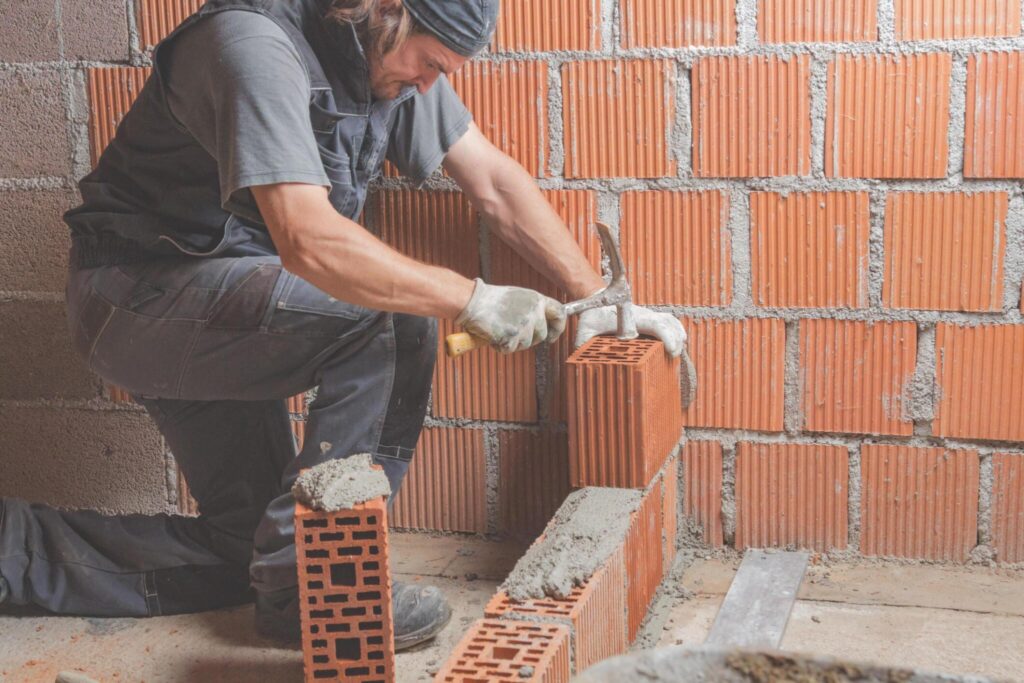
Stone masonry represents a harmonious blend of strength and elegance in construction. Its rich heritage and timeless appeal continue to inspire contemporary architects and designers. Today’s expert masonry contractors, as custodians of this age-old craft, seamlessly incorporate traditional techniques into modern designs. Join us on a comprehensive journey exploring 12 stone masonry techniques steered by masonry contractors, marrying aesthetics and use.
The Basics of Stone Masonry in Construction
At the heart of construction lies the art of stone masonry, where the strategic arrangement of stones transforms into structures of remarkable longevity and allure. This art form, which has evolved over centuries, has a profound relevance even in today’s architectural landscape. The collaborative effect between masonry contractors and stone masonry underscores the importance of this fusion, where time-honored techniques fortify the very essence of construction.
12 Types of Stone Masonry
In the mosaic of stone masonry styles, each variety serves as a brushstroke on the canvas of construction:
1. Rubble Masonry
Rubble masonry is a method emphasized by masonry contractors that uses irregular stones to create sturdy foundational walls. These walls carry the weight of history and provide support for the future. The rough look of rubble masonry adds character and strength to masonry projects. It’s like building with nature’s puzzle pieces, where each stone fits uniquely but works together to create a solid structure.
2. Ashlar Masonry
When done by skilled masons, Ashlar masonry results in neat and precise masonry structures. These structures can have stones stacked evenly with or without mortar. Masonry contractors appreciate this technique because it gives the roofs a uniform and organized appearance. Every stone is cut and placed carefully, showing the mason’s craft and ensuring the roof’s stability.
3. Coursed Rubble Masonry
Coursed rubble masonry is about arranging stones in an organized manner to create strong walls. A masonry contractor such as Ridgefield Expert Masonry Contractor values this method because it combines irregular stones into a structured pattern, making the walls sturdy and dependable. The stones are laid out in even layers, adding strength and showing careful planning and skillful execution.
4. Polygonal Masonry
Polygonal masonry, emphasized by a masonry contractor in Ridgefield, CT, uses stones of different shapes to build roofs. These shapes fit together like a puzzle, creating a beautiful design and a stable structure. Masonry projects benefit from this method as it adds interesting patterns to the roofs while ensuring they are strong.
5. Dressed Stone Masonry
Dressed stone masonry is about making stones smooth and precise for masonry projects. Masonry contractors like using this technique to create detailed designs on roofs. The mason carefully shapes each stone to fit exactly where needed, showing the mason’s skill and the contractor’s attention to aesthetics.
6. Dry Stone Masonry
Dry stone masonry is when stones are placed together without using mortar. This technique gives a rustic look to masonry projects and helps with natural drainage. A masonry contractor in Ridgefield, CT, who emphasizes this method creates roofs with a more natural and timeless appearance.
7. Rustication Masonry
Masonry contractors use rustication masonry to add texture to masonry designs. This means the stones have a rough surface, adding depth and character to the roofs. This method creates a sense of history and uniquely charms masonry projects.
8. Slipform Stone Masonry
Slipform stone masonry is a way to build tall parts of roofs, like chimneys quickly. Masonry contractors like Ridgefield Expert Masonry Contractor who use this method pour concrete and stones continuously as the structure goes up. This helps in making tall masonry elements efficiently.
9. Rammed Earth Masonry
Rammed earth masonry is about using earth to create masonry structures. It’s a sustainable choice embraced by some masonry contractors. The roofs made with this method have earthy colors and are environmentally friendly.
10. Random Rubble Stone Masonry
Masonry contractors who like the natural look often choose random rubble stone masonry. This means using irregular stones to create roofs with a unique and informal appearance. Each stone contributes to the distinct pattern, making the roofs stand out.
11. Composite Masonry
Masonry contractors use composite masonry to combine different types of stones in roofs. This creates roofs that are both strong and visually pleasing. Each stone type has its own qualities; by mixing them, masonry contractors get the best of both worlds.
12. Cyclopean Masonry
Cyclopean masonry uses big stones to make masonry elements that catch attention. This technique, emphasized by a masonry contractor in Ridgefield, CT, brings a sense of history to modern roofs. The massive stones create impressive masonry features that are hard to miss.
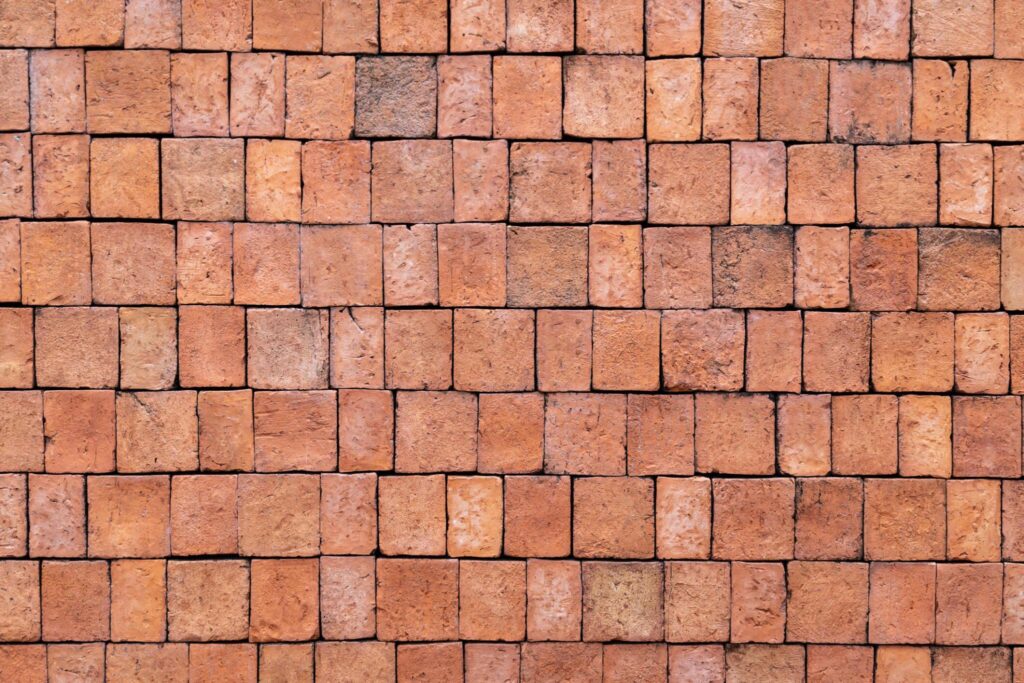
Advantages, Challenges, and Considerations of Stone Masonry Integration
Masonry contractors who infuse stone masonry into their projects unlock a range of advantages that enhance the integrity and appeal of their masonry structures. The benefits of this integration are multifaceted and include:
Advantages
Durability
Stone masonry is incredibly durable for masonry projects. The natural strength of stones makes roofs sturdy and able to endure different weather conditions and external pressures. This toughness ensures that the roofs remain functional and intact for a long time, saving on potential repair and replacement costs.
Aesthetic Appeal
The beauty of stones adds a classic and appealing look to roofs. Whether it’s the simple charm of dry stone masonry or the precise lines of ashlar masonry, the visual impact of these techniques transforms roofs into eye-catching features. The natural colors and textures of stones lend a sense of timelessness to masonry designs, enhancing the overall look of structures.
Eco-Friendliness
Stone masonry often relies on materials found locally, reducing the need for long-distance transportation and its associated carbon emissions. Techniques like rammed earth masonry, which uses earth from the construction site, align with environmentally conscious practices. This focus on local resources contributes to sustainable building practices and minimizes environmental impact.
Low Maintenance
Roofs constructed with stone masonry require less upkeep than other materials. Stones’ inherent strength and durability mean the roofs are less prone to damage and degradation over time. This translates to fewer repairs and replacements, saving both time and money for masonry contractors and homeowners.
Thermal Efficiency
Stone has natural insulating properties that help regulate indoor temperatures. This insulation contributes to energy efficiency by keeping interiors cooler in the summer and warmer in the winter. As a result, less energy is needed for heating and cooling, leading to reduced energy bills and a smaller environmental footprint.
Challenges
Demand for Expertise
Effective stone masonry demands seasoned craftsmen acquainted with intricate techniques. Masonry contractors must employ experienced masons who can adeptly position and set stones. These experts recognize the nuances ensuring the longevity of the stonework.
Time-Intensive Process
Stone masonry is a challenging endeavor. Selecting the ideal stones, shaping them accurately, and meticulous placement demand time and patience. If you’re prioritizing speed, other masonry methods might be more suitable.
Inherent Complexity
Certain stone masonry styles, like polygonal or composite, require precise elucidation. Contractors must exercise utmost caution and strategize thoroughly. These designs challenge masons as they resemble complex puzzles, demanding precise assembly of varied stone types.
Higher Initial Cost, Long-Term Savings
While the initial investment in stone masonry might be higher than alternative materials, it offers long-term financial benefits. Due to their durability, stones necessitate minimal repairs or replacements, proving cost-effective in the long run.
Considerations
Project Scale
The size of your masonry project is a big deal. Some stone masonry styles work better for bigger projects, while others are fine for smaller ones. If your project is on the smaller side, complex methods might be more hassle than they’re worth. Simpler ways can save time and effort.
Regional Climate
Your region’s climate plays a pivotal role in stone selection and masonry technique. It’s vital to select stones that can withstand the specific environmental conditions of your area, be it extreme heat, chilling cold, heavy rainfall, or snow.
Budget Matters
Evaluate your financial limits. Although stone masonry might command a higher initial outlay, it can lead to significant long-term savings. Weigh the immediate expenses against the potential future savings to strike the right balance.
Design Vibes
Think about how you want things to look. Different stone masonry styles have different vibes. If you want a rugged, natural look, rubble masonry might be your thing. If you’re after something fancier, dressed stone masonry could be the way to go. The look you’re after guides which style to use.
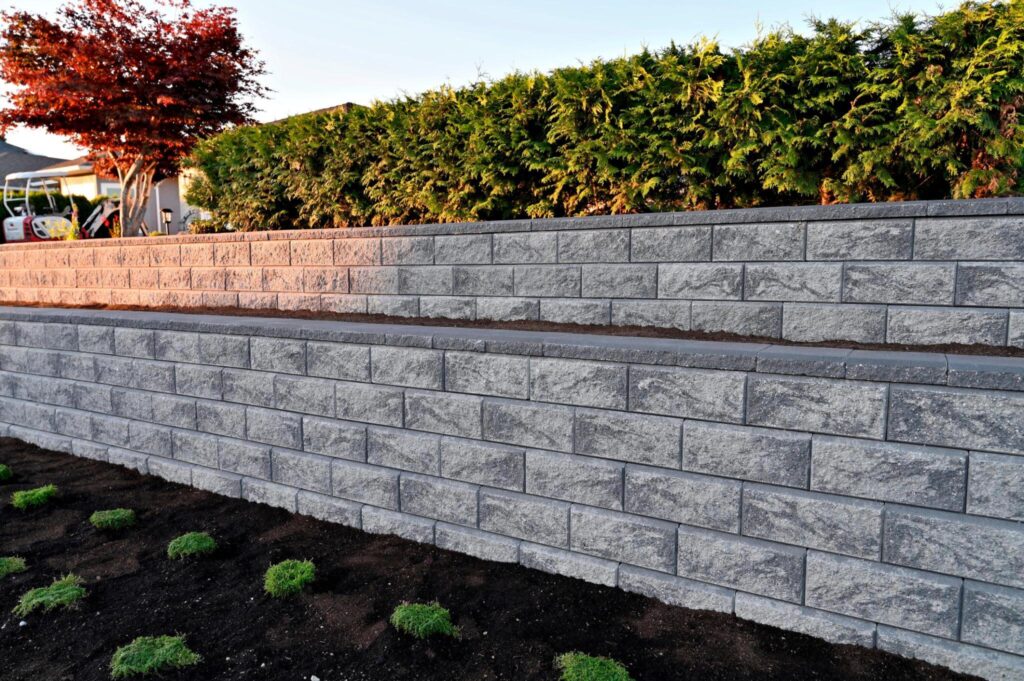
Current Trends in Stone Masonry
In the present era, stone masonry is transforming, reflecting the evolving landscape of architecture and design. These trends showcase the fusion of traditional techniques with modern sensibilities, resulting in innovative and captivating applications of stone masonry.
Harmonious Blend of Styles
Contemporary stone masonry embraces a harmonious blend of styles, seamlessly integrating traditional and modern design elements. Architects and contractors merge classic stone craftsmanship with sleek lines and minimalist aesthetics to create visually striking structures that bridge the past and the future.
Sustainable Practices
Environmental consciousness has become a driving force in modern construction. Stone masonry aligns with sustainability objectives by utilizing locally sourced materials and energy-efficient techniques. This trend reduces the carbon footprint and contributes to buildings that stand the test of time.
Sculptural Accents
Modern stone masonry is stepping into the realm of art, with architects incorporating sculptural accents into their designs. Stones are carefully shaped and arranged to create captivating focal points, transforming buildings into three-dimensional works of art.
Innovative Texture Play
Texture has taken center stage in contemporary design, and stone masonry is no exception. From rough-hewn surfaces to intricately carved patterns, architects are exploring the tactile qualities of stones to add depth and character to buildings.
Integration of Technology
Advancements in technology have revolutionized stone masonry. Computer-aided design (CAD) and precision cutting tools allow for intricate detailing and complex patterns that were once challenging to achieve. This integration of technology pushes the boundaries of what’s possible with stone.
Hybrid Materials
Contemporary stone masonry often transcends traditional boundaries by incorporating other materials like glass, metal, or wood. This fusion of materials results in dynamic facades and interiors that play with contrasts and textures.
Urban Revival
Cities are witnessing a resurgence of interest in stone masonry as designers seek to blend historical elements with modern urban landscapes. The revival of stone facades, sidewalks, and landmarks connects the past to the present, creating a sense of continuity in rapidly changing environments.
Artisanal Craftsmanship
There’s a renewed appreciation for artisanal craftsmanship in an age of mass production. Contemporary stone masonry celebrates the individuality of each stone and the hands that shape them, embracing imperfections as a mark of authenticity.
Multi-Functional Applications
Stone masonry is finding its place beyond aesthetics. It’s being used as functional elements like solar shading, acoustic insulation, and even as part of green building systems, showcasing its versatility in modern design.
Preservation and Restoration
Amid the pursuit of modernity, there’s also a recognition of the value of preserving historical structures. Contemporary stone masonry includes restoration projects, breathing new life into heritage buildings while retaining their original charm.
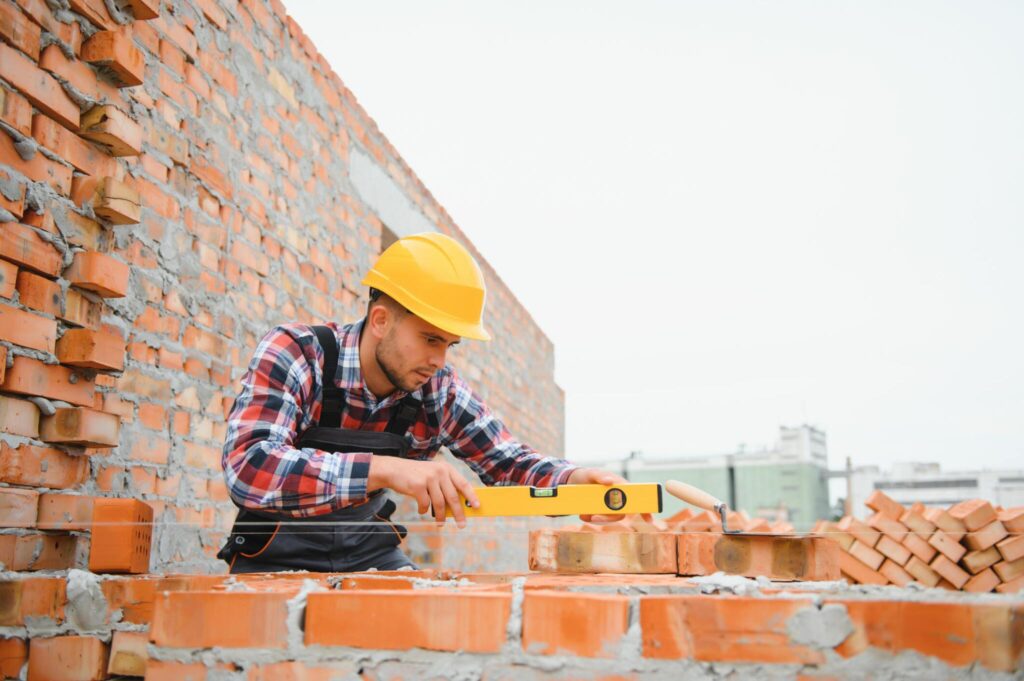
Why Hire Professional Masonry Contractors?
A professional masonry contractor is essential when installing stones for various reasons. Here’s why their expertise is crucial:
Skill and Knowledge
Masonry contractors are highly trained experts with a deep understanding of stonework. Their specialized skills and extensive knowledge enable them to manage various stone types effectively, ensuring that installations are carried out to meet industry standards and requirements.
Correct Installation Techniques
With stones coming in diverse sizes, shapes, and textures, professional masonry contractors are well-versed in employing appropriate techniques for each unique type. This expertise allows them to install stones securely, ensuring stability and endurance over time.
Structural Integrity
Given the weight of stones and their potential impact on structures, skilled masonry contractors excel in distributing the stone’s weight uniformly. This strategic distribution mitigates the risk of structural problems like cracks or collapses, resulting in reliable and enduring installations.
Precision and Aesthetics
Creating visually pleasing stone installations demands precision and attention to detail. Masonry contractors possess an innate sense of aesthetic balance, ensuring stones are aligned flawlessly, resulting in a visually appealing pattern that enhances the overall appearance of the structure.
Safety Measures
The tools and equipment used in masonry work can pose safety hazards. Professional contractors undergo thorough safety training, making them proficient in using these tools correctly. This expertise minimizes potential risks during installation, safeguarding both the workers and the project.
Material Selection
Only some stones are suitable for some projects. Masonry contractors leverage their experience to recommend the right stone type based on environmental factors, local climate conditions, and the structure’s intended use. This thoughtful selection contributes to the project’s success and longevity.
Efficiency
Masonry professionals are known for their efficiency in project execution. Their years of experience allow them to navigate installations smoothly and complete projects in less time without compromising quality, minimizing disruptions and delays.
Code Compliance
Maintaining local building codes and regulations is vital in masonry work. Professional contractors are well-versed in these requirements, ensuring the installation meets all necessary standards and seamlessly passes inspections.
Cost-Effectiveness
While the upfront cost of hiring professionals may seem higher, their expertise prevents costly mistakes that could arise from incorrect installations. Opting for professional installation from the outset can lead to long-term savings by avoiding the need for extensive repairs down the line.
Problem-Solving
Complex installations can come with unexpected challenges. Professional masonry contractors possess problem-solving skills honed through experience. When issues arise, they use their knowledge to troubleshoot effectively, keeping the project on track.
Longevity
Masonry contractors understand that durability is key to installations. They excel in preparing surfaces, selecting appropriate materials, and applying techniques that enhance the longevity of the installation. This focus on durability ensures that properly installed stones can withstand the test of time and environmental factors, providing value for years to come.
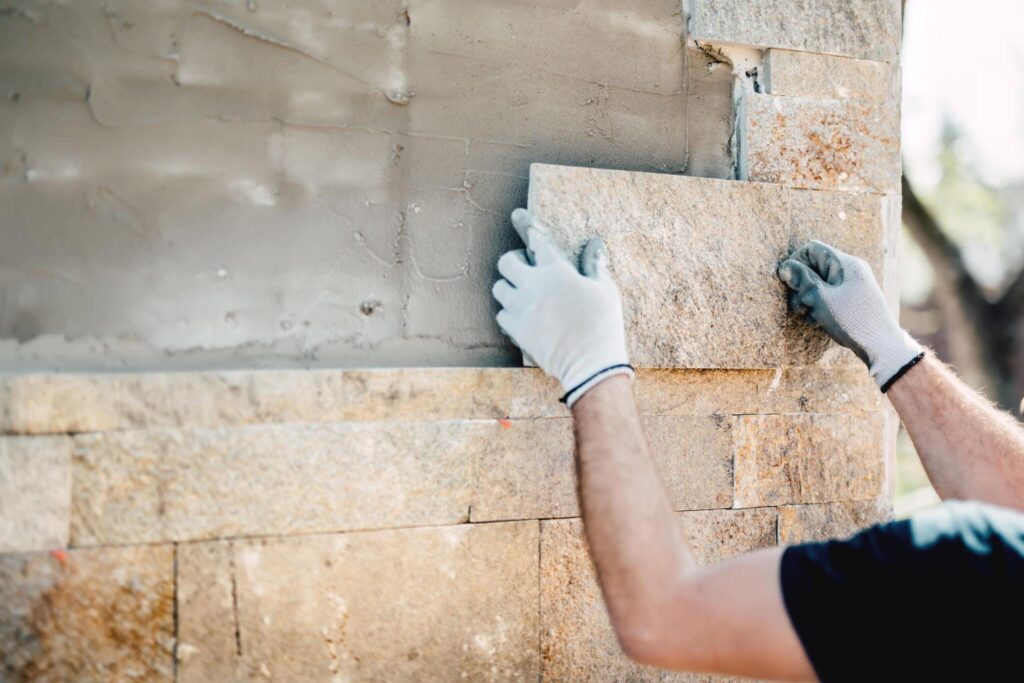
Factors to Consider When Selecting a Masonry Contractor
Choosing the right masonry contractor is a crucial step in ensuring the success of your project. Here are essential factors to consider before making your decision:
Experience and Expertise
Look for a contractor with a solid track record and extensive experience in masonry work. Experienced contractors bring a wealth of knowledge and skills to your project, increasing the likelihood of a successful outcome.
Portfolio and References
Review the contractor’s portfolio to gauge the quality of their previous work. Request references from past clients to gather insights into their professionalism, work ethic, and the results they deliver.
Licensing and Insurance
Ensure the contractor holds the necessary licenses and permits for masonry work in your area. Verify their insurance coverage to protect yourself from liability in case of accidents or property damage during the project.
Reputation and Reviews
Research the contractor’s reputation by checking online reviews and ratings. Positive feedback and recommendations from previous clients can provide valuable insights into their reliability and the quality of their work.
Range of Services
Consider whether the contractor offers a comprehensive range of masonry services that align with your project’s requirements. This can include various techniques, materials, and design capabilities.
Communication Skills
Effective communication is key to a successful project. Choose a contractor who listens to your needs, provides clear explanations, and communicates openly.
Project Timeline
Discuss the expected timeline for your project and ensure that the contractor can commit to your desired completion date. A reliable contractor should be able to provide a realistic timeline based on their workload and resources.
Cost and Budget
Obtain detailed quotes from multiple contractors and compare pricing structures. While cost is a factor, also consider the workmanship quality and the materials used.
Local Knowledge
A contractor familiar with local building codes, weather conditions, and terrain can navigate potential challenges more effectively and ensure compliance with regulations.
Warranty and Guarantees
Inquire about the contractor’s warranty or guarantee for their work. A reputable contractor should stand behind their craftsmanship and offer a warranty on materials and labor.
Communication and Transparency
Choose a contractor who communicates clearly and transparently about project details, potential challenges, and any changes that may arise during the process.
Safety Practices
Safety is paramount in construction projects. Ensure the contractor follows industry-standard safety practices to protect workers, residents, and property during the project.
Availability
Consider the contractor’s availability to complete your project within your desired timeframe. A contractor who can commit to your schedule without compromising quality is advantageous.
Flexibility
Projects can encounter unexpected changes or challenges. A masonry contractor in Ridgefield, CT, who can quickly adapt and find solutions demonstrates flexibility and professionalism.
Discover Excellence in Stone Masonry with Ridgefield Expert Masonry Contractor Today!
Stone masonry in construction is truly brought to life by a skilled masonry contractor in Ridgefield, CT. These 12 types of stone masonry stand as clear examples of a masonry contractor’s practical expertise and craftsmanship. As we admire the impressive structures that adorn our horizons, we’re reminded that the collaboration between stone and masonry contractors spans time, creating stories that resonate with the essence of architecture itself.
For exceptional stone masonry services that embody these qualities, look no further than Ridgefield Expert Masonry Contractor. We’re here to turn your vision into reality with our professional skills and meticulous attention to detail. Reach out to us today, and let’s embark on your next project together!
